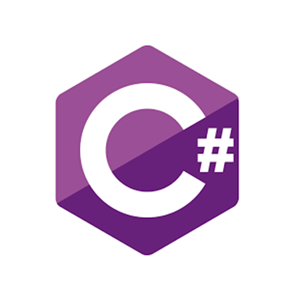Q:
C#.Net find output programs (Interface) | set 1
belongs to collection: C#.Net find output programs
C#.Net find output programs
- C#.Net find output programs (Data Types) | set 1
- C#.Net find output programs (Data Types) | set 2
- C#.Net find output programs (Data Types) | set 3
- C#.Net find output programs (Operators) | set 1
- C#.Net find output programs (Operators) | set 2
- C#.Net find output programs (Operators) | set 3
- C#.Net find output programs (const Keyword) | set 1
- C#.Net find output programs (this Keyword) | set 1
- C#.Net find output programs (readonly Keyword) | set 1
- C#.Net find output programs (static Keyword) | set 1
- C#.Net find output programs (static Keyword) | set 2
- C#.Net find output programs (if else) | set 1
- C#.Net find output programs (if else) | set 2
- C#.Net find output programs (if else) | set 3
- C#.Net find output programs (switch statement) | set 1
- C#.Net find output programs (switch statement) | set 2
- C#.Net find output programs (switch statement) | set 3
- C#.Net find output programs (goto) | set 1
- C#.Net find output programs (Loops) | set 1
- C#.Net find output programs (Loops) | set 2
- C#.Net find output programs (Loops) | set 3
- C#.Net find output programs (Arrays) | set 1
- C#.Net find output programs (Arrays) | set 2
- C#.Net find output programs (Arrays) | set 3
- C#.Net find output programs (default Arguments) | set 1
- C#.Net find output programs (default Arguments) | set 2
- C#.Net find output programs (Parameter Passing) | set 1
- C#.Net find output programs (Enumeration) | set 1
- C#.Net find output programs (Enumeration) | set 2
- C#.Net find output programs (Boxing & Unboxing) | set 1
- C#.Net find output programs (Structure) | set 1
- C#.Net find output programs (Structure) | set 2
- C#.Net find output programs (Structure) | set 3
- C#.Net find output programs (Classes & Objects) | set 1
- C#.Net find output programs (Classes & Objects) | set 2
- C#.Net find output programs (Classes & Objects) | set 3
- C#.Net find output programs (Constructors & Destructors) | set 1
- C#.Net find output programs (Constructors & Destructors) | set 2
- C#.Net find output programs (Constructors & Destructors) | set 3
- C#.Net find output programs (Inheritance) | set 1
- C#.Net find output programs (Inheritance) | set 2
- C#.Net find output programs (Inheritance) | set 3
- C#.Net find output programs (Interface) | set 1
- C#.Net find output programs (Interface) | set 2
- C#.Net find output programs (Method Overloading) | set 1
- C#.Net find output programs (Method Overloading) | set 2
- C#.Net find output programs (Method Overriding) | set 1
- C#.Net find output programs (Method Overriding) | set 2
- C#.Net find output programs (Method Overriding) | set 3
- C#.Net find output programs (Operator Overloading) | set 1
- C#.Net find output programs (Operator Overloading) | set 2
- C#.Net find output programs (Operator Overloading) | set 3
- C#.Net find output programs (Namespace) | set 1
- C#.Net find output programs (Namespace) | set 2
- C#.Net find output programs (Exception Handling) | set 1
- C#.Net find output programs (Exception Handling) | set 2
- C#.Net find output programs (Exception Handling) | set 3




 c# programming
c# programming
Answer 1:
Output:
Explanation:
The above program will generate syntax error because we cannot use public or any other access modifier with the method declaration contained in the interface.
Answer 2:
Output:
Explanation:
In the above program, we created an interface IMath that contains the declaration of Add() method then we inherited the IMath interface in Math class and implemented Add() method in the Math class.
Let's look to the Main() method, here I created an object of Math class and called Add() method that will print the addition of given arguments.
Answer 3:
Output:
Explanation:
The above program will generate syntax error because we cannot use the virtual modifier with the method declaration contained in the interface.
Answer 4:
Output:
Explanation:
The above will generate compile-time errors because we cannot use the override keyword to implement the method of the interface. Actually, there is no need to use the override keyword.
Answer 5:
Output:
Explanation:
The above program will generate a syntax error because of the below statement,
IMath M = new IMath();In the above statement, we tried to create the instance of an interface, but it is not possible in C#.
need an explanation for this answer? contact us directly to get an explanation for this answer